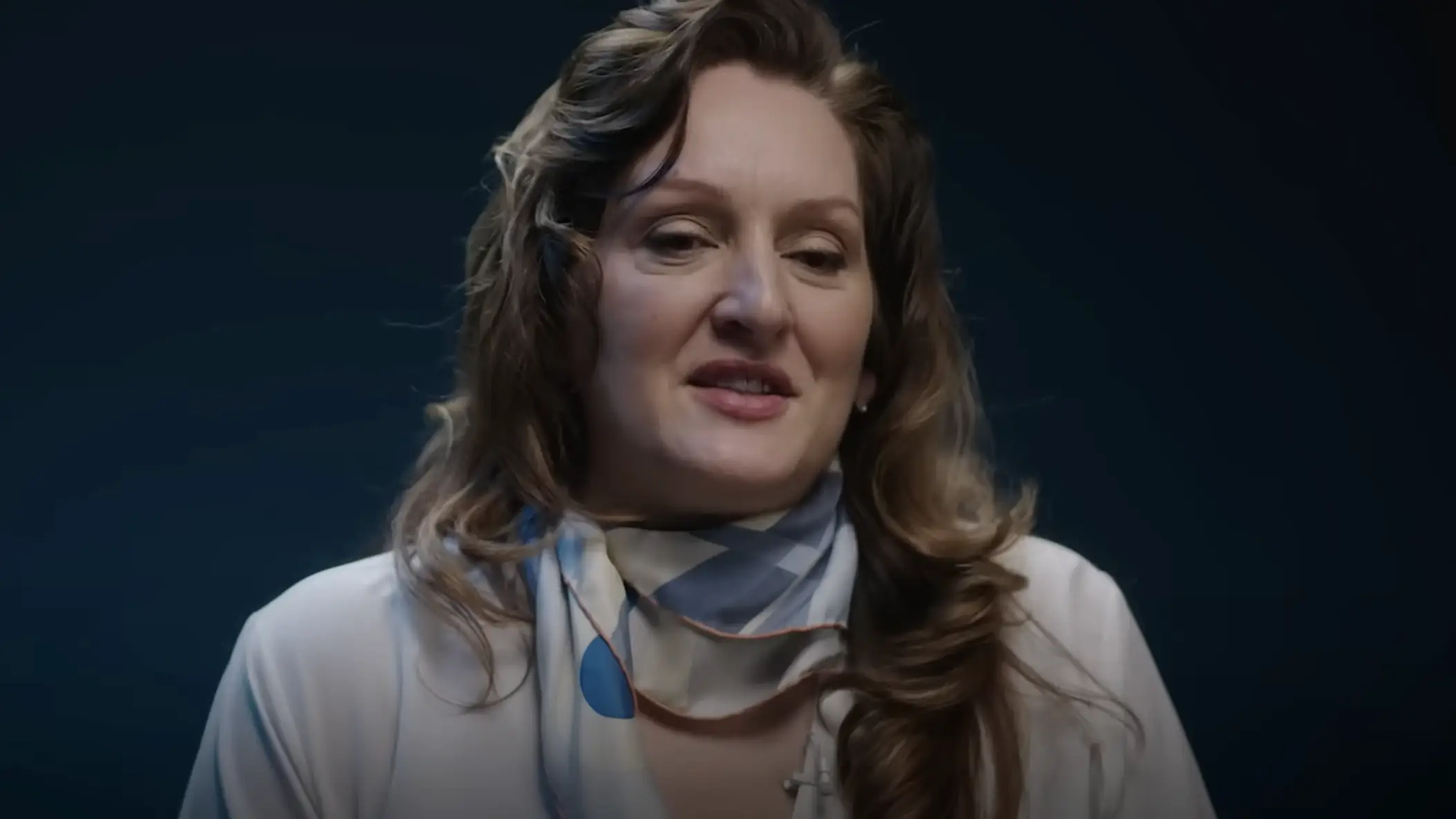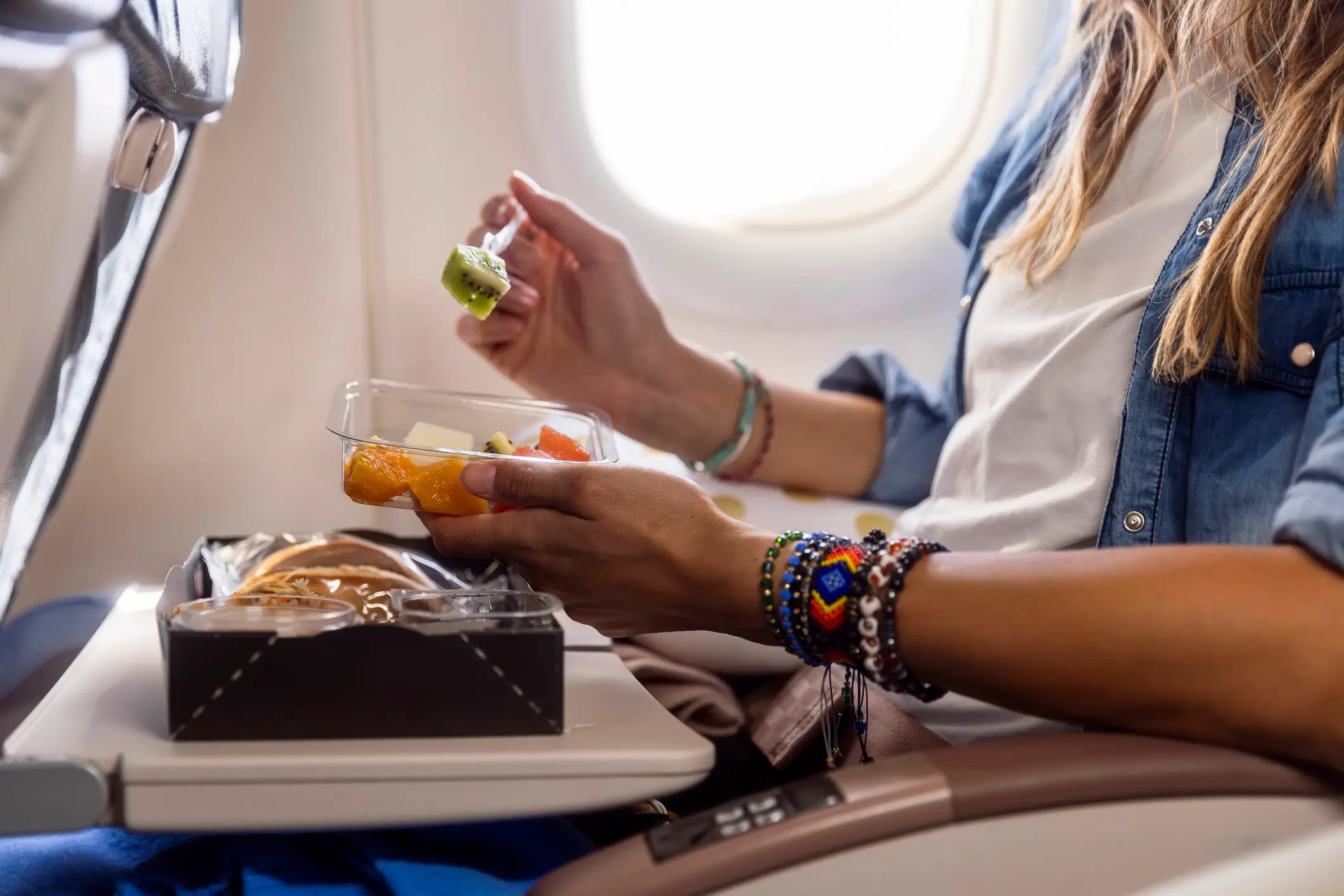
It's a widely accepted thing that food consumed at 30,000 feet tastes a bit naff, which is okay, as most of us aren't boarding an aeroplane to experience fine dining.
Nowadays, most of us will stock up on a meal deal - expanded crisp packet and all - in order to avoid the overpriced ready meals, only to find that your favourite sandwich and snack selection doesn't quite hit the same as it does back on the ground.
But have you ever wondered why plane food has the same taste and texture as your school dinners? Turns out it's a very real thing.
But not for the reason you'd expect.
Advert
The question was previously put to ex-flight attendant Mandy Smith by LADbible during a chat about her experience working in the industry.

So why does food taste so strange? Turns out it's less to do with the food and more to do with you.
"It’s not the food that’s bad, it’s your taste buds that are different in mid air," Mandy said, explaining that cabin pressure has an impact on all of your body.
"The pressure of the cabin affects your whole body, even your taste buds," she continued. "It affects all of your gastric anomalies, your brain and everything. It does affect your taste buds as well."
This may sound like propaganda on Mandy's part to convince us all to buy more food while onboard aircraft, but she's not lying as our perception of sweet and salty foods does actually change while we're in the air.
The change in your ability to taste comes down to three things: a lower air pressure inside the cabin, lack of humidity and an increase in sound (via Delish), while the Fraunhofer Institute for Building Physics adds that our ability to taste salt decreases by 20 to 30 percent and sugar 15 to 20 percent.

"Flavour is a combination of both, and our perception of saltiness and sweetness drop when inside a pressurised cabin," Russ Brown, director of In-flight Dining & Retail at American Airlines, previously explained to the BBC.
Looks like we may all have to collectively stop slandering aeroplane food after all.
So what do meals served up on your favourite airlines taste like when you're not cruising through the air? Salty apparently.
"If you actually tasted that food on the ground, which is what the chefs do when they’re creating the menu, it actually tastes quite salty and quite strong," Mandy added.
"They have to make it stronger flavoured because of the taste bud situation."
Your ability to taste food isn't the only thing which changes while you're flying either, with alcohol also impacting your body differently on a plane.
"Alcohol can also have a more robust effect on the body at altitude," Dr Kevin Huffman previously told LADbible.
"Cabin pressure can boost your Blood Alcohol Content (BAC) by as much as 50 percent, so that glass of wine at the airport could leave you feeling far more intoxicated than you’d otherwise be.
"That can affect your decision-making and motor skills, making you more prone to accidents or injury during boarding or deplaning."
Topics: Food And Drink, Travel, Flight attendants